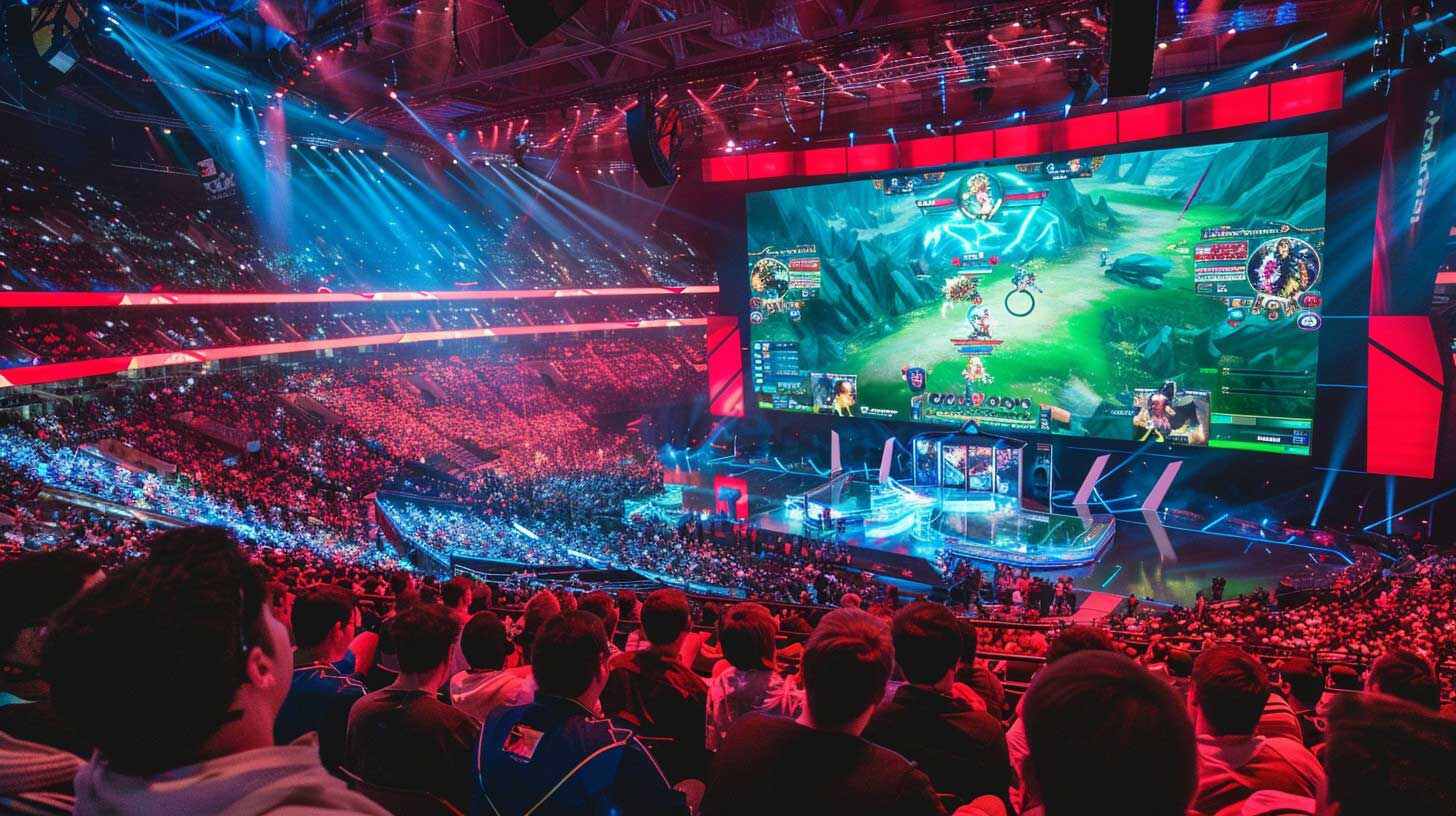The Rise of Esports: How Video Games are Becoming Competitive Sports
In the last few years, esports has become more than a hobby for a few people, the interest from fans, gamers, and even companies has grown for esports. What was regarded as a hobby for the select technologically able, has now budding into an industry that is competing with the already existing ones in terms of audience, sponsorships, and cultural relevance.
The Growth of Video Games
The early days that Development of Video games world is far from the days of arcade Games and pixels. Pong and Space Invaders were great examples of how technology was able to develop something simple, that could entertain people and have complexity that comes along with appeal of a game. Then came the 90s and with it games like Street Fighters and Counterstrike that not only added competitive elements, but also led to the first organized tournaments.
For international players to have the opportunity to compete with one another real time, the industry had to first boom and that’s exactly what happened when the 21st century hit, which also permeated and laid the groundwork for fast internet and high performance gaming consoles. This led to the surge of players in both casual and professional gaming, leveling the playing field by allowing anyone with a console or PC to join.
The Rise of eSports
Esports and competitive gaming started as casual local tournaments and by the late 2000s the domain had rapidly expanded for both participants and the audience. The rise of digital content creators started because of Twitch and Youtube, which allows eSports to have global outreach and cater to millions of viewers. Prize pools in tournaments became astronomically comparably to conventional prize pools, not forgetting ‘The International’ Dota 2 tournament where $40 million was on offer in 2021.
Historic public interest in new genres of competitions has also brought forth professional esports teams, lucrative sponsorships as well as sporting agents and organizations recognizing them as professionals. Nowadays, professional gamers endure the same demanding regime as conventional athletes, as they train many hours a day to improve and hone their skills.
Esports Against Football: A Critical Comparison
Esport is still a young industry, and a question such as ‘is combatting internationally and professionally via video games a sport’ is completely common. Esport defined challenges such as strategy, skill, devotion and in some cases quick reflexes. For example, communicative endeavors in games like Dota or Siege are as critical as watching football for a basic understanding of the sport. These games require professional level communication and skill across the characters and teams in the game.
Easily accessible streaming platforms have the potential to revolutionize any sport. Just the same as traditional sporting events, esports competitions are attended by thousands and viewed by millions from across the globe. Colleges have begun to offer scholarships for esports players; professional leagues and teams have started to unify scholars, and the sport is only just beginning to gather pace.
Fans of the ‘sport’ world are probably aware of many musicians and professional athletes investing into esports teams, not because they have an interest in the “sport”, but due to its increasing relevance in popular culture. Cross domains monopolization is a new business opportunity which is why journalists and business people speaking about the gaming industry should broaden their horizons as fit with the trends.
Esports offers an avenue appealing to diversity. This scenario is quite different from sports in real where age, gender or ability can amount to some sort of a barrier to participation. Such differences in many cases were responsible for creating a different bunch of player plus followers of the game and this eventually aided in the erosion of the much held gaming stereotypes as well as developed better practices in the gaming world.
The Future of Esports
The prospects for the esports industry are very encouraging. All thanks to further development of technologies like virtual and augmented realities, the scope for extremely engaging and interactive gaming experience seems to be limitless. And on top of that, recent growth in mobile gaming has also created opportunities for competitiveness in various areas where regular setups may not be readily available.
As the professionalism in the esports realm increases, it will become more influential and visible in the currently understood society. There could be more synergies with other sports due to the fusion of gaming and more conventional sporting events, whereby esports may form part of the Olympic Games or mainstream leagues joining forces with gaming firms.
Conclusion
Esports started off as a marginal pastime but it has grown into a global industry that can be compared directly to traditional sports with respect to viewership and revenue. With the advancements in technology and wider access to the gaming world, the variations of esports and a traditional sport will continue to diminish with time. Be it an occasional player or a hardcore supporting fan, it is hard to refute that esports will has rooted itself deep into the ground and will earn more prominence with the passage of time.
Explore: The Evolution of Gaming: From Pixels to Virtual Realities



















